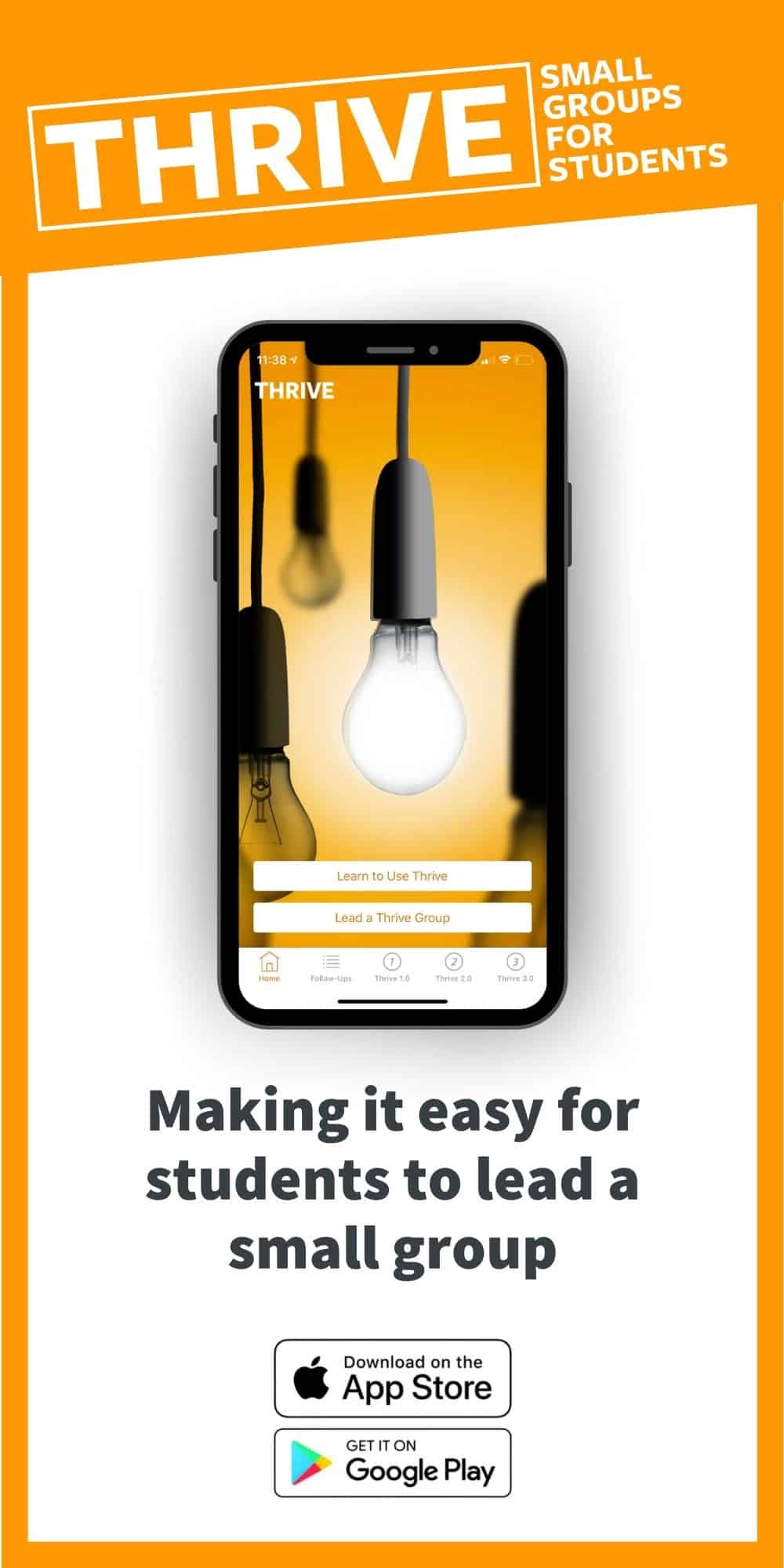When we have the support of parents/guardians, the strength and influence of our ministries are significantly increased.
Think about it, when a student gets involved with Cru, we are not just asking them to commit a lot of time. We are inviting them to live surrendered lives to Jesus, which demands all their devotion. It directly impacts everything about them. Parents or guardians are vital to the commitment level of every student with whom we engage. Students can also make a huge impact on their families. We have seen Jesus change whole families just by involving parents as we disciple their kids. For these reasons, we believe partnering with parents is vital.
It is wise to assume the parents you meet are doing the best job they can raising their child. It is possible to run into a parent/guardian who is disengaged from their child’s life, but this is not the norm. So we want to help you be intentional with communicating and connecting with the parents/guardians of the students who are involved.
Any true partnership starts and ends with clear and consistent communication.
Five Principles for Engaging with Parents/Guardians
1) Speak up First
Meet parents/guardians as soon as you can. Take the first opportunity you have to shake their hand and introduce yourself. Maybe you are on campus after school to meet new students and one of their parents shows up. Go introduce yourself. You are at a sporting event, and parents of a student you know are there; introduce yourself. After one of your gatherings, you see parents coming to pick up students; make it your aim to shake their hand and introduce yourself.
Here is a suggested script you might use to do this:
“Hi, Mr./Mrs. _________. My name is _________. I work with Cru, a Christian youth organization that works with students all over the country. We have been serving at _________ High School for [x] years now, and we really just want to see students do well in life. I met your son/daughter at ________ and they have been doing _______ with us. I try to talk with the parents of the students I meet, to see if you know about Cru, and to answer questions you may have. Has your son/daughter said anything to you about Cru? Do you have any questions? “
Other things you might include when meeting them:
- Share with them your educational background and the training you have received in youth work.
- Explain our ministry using the three-dimensional person or any other way your local expression of Cru casts vision to students.
- Be prepared to share with them people on campus who can vouch for Cru as a reputable organization, e.g. teachers, administrators, other parents, etc.
It may be more feasible to introduce yourself over the phone, and that works just as well. The sooner you speak up and introduce yourself, the better. It will develop trust and can help clear up any possible misunderstandings that may come up later.
2) Know Your Audience of Parents
Parents/guardians are not one-size-fits-all kind of people. Whether you have interacted with them for years, you are one yourself, or you have not had much contact with other parents besides your own, it is important to know that all parents are different. Get to know the parents with whom you will be working.
Some parents/guardians exercise greater oversight with their children than others, but almost all parents care about their kids’ whereabouts, development, and well-being. No matter the situation, there are reasons why parents differ in terms of these things. It is always best to get to know how and why parents interact with their kids. We need to approach each family with a posture of support.
People come from various socio-economic and ethnic backgrounds, which highly influences what they value and how they raise their kids. Differences in parenting are not always based on what they have the capacity for, but are also influenced by how each family’s personal values and culture regard kids, parents, and the family relationship. You may find grandparents to be as highly involved in a child’s life as parents because they all share the same housing or because there is an emphasis on extended family.
There are still other situations where parents are not involved at all and, because of their lack of availability emotionally or physically, other people may be more involved, such as grandparents or a guardian. It is also important to be sensitive to the fact that not all parents are the child’s biological parents. We always need to be aware of the possibilities of adoption and foster care. It is important to be cautious about making assumptions when it comes to a child’s connection with the adults in their lives.
3) Involve Parents
How would it help your ministry if you knew a parent was praying for you, your team, and the ministry every day? How might it encourage you and your community to see your work with teenagers directly impacting the lives of families? As you pursue students relationally, be looking for opportunities to involve parents in the work. The sky is the limit here.
Parents can be involved in many different ways, but here are a few ideas:
- Helping with any fundraisers
- Bringing food to meetings
- Leading a group of students or another parent group
- Volunteering at conferences and/or mission trips
- Leading a prayer group
A ministry within a ministry
A parent that prays for you is a parent that supports you. Asking parents to join in praying for you is a great way to connect families to your ministry.
You could facilitate this by asking students to bring their parents to a prayer meeting. Ask the parents to take one day a month to pray for the ministry. This can be as informal as them deciding how to pray and as formal as having a monthly calendar and indicating a way to pray on each day of the month. Parents can also gather to pray as a group regularly or periodically.
You could ask a group of parents to commit to praying through a particular time of the year, such as breaks or during special events, like when the ministry is going to participate in a spring or summer mission. You could even ask a parent to oversee a team of parents and allow them to provide leadership and/or discipleship to this area of the ministry.
4) Respect Their Authority
I once reached out to a parent to introduce myself and asked if they had any questions. They told me they did not want their child involved with us. This is rare, but it does happen. In that case, give the parents your word you will not contact their child. Regardless of those parents’ reasoning, you need to respect their parental rights and encourage their son/daughter to respect their parent’s wishes too.
5) Communicate Clearly and Often
Let’s be honest, you cannot partner with someone with whom you do not communicate. Any true partnership starts and ends with clear and consistent communication. Most parents will feel valued when we make sure they know what is happening.
Here are some ways to communicate with parents:
- Phone Calls are very helpful ways to establish trust with parents. Phone calls can be used to introduce yourself, inform a parent of an event, or just build a relationship. Making a phone call goes a long way in building trust.
- Texting is a quick way to get out a small amount of information in a timely way. Parents often communicate with their kids in this way so they are aware of and attentive to texts coming in on their devices. You might consider creating a Whatsapp (or similar platform) messaging group for parents and guardians.
- Snail Mail is a very effective way for building trust as well. Snail mail with a personal touch is huge in building a relationship with families. Examples would be a postcard saying you are praying for their family or a reminder of an upcoming event. Send a card when the family is experiencing loss, a move, or graduation.
- Email a newsletter about what is happening with the ministry. Using something like Mailchimp will allow you to design letters, share them on social networks, and track your results. You will also be able to send info to a just one segment of your database of parents.
- Meetings can be used periodically to welcome new parents or to start the school year. These are good when you need to give details about an upcoming mission trip or conference and if there is low relationship capital. Even if parents do not show up, having a meeting can help a parent/guardian see you are serious and professional.
- The Cru website gives plenty of helpful information for parents wanting to know more. Click here to look it over to become familiar with what is on it.
- Social Media is another great way to communicate with parents. Find out if most of the parents are on Facebook or Instagram or some other platform. Ask a parent to help begin connecting parents of involved students.
- For events: Most parents feel better the more details they have. They are wondering, “Will my child be safe and well-supervised?” Make sure you can communicate who, what, where, and when, including start and end times.
Engaging parents/guardians is a must for a successful win, build, send ministry.
Not Sure Where to Start?
It is not always easy to start something new. It can be easy to get overwhelmed, but the following are some small steps to help you get started:
- Ask yourself, “Who are the students with whom I spend the most time?” These are the parent you want to engage first.
- If there are a lot of them, pray and narrow it down to five students.
- Get the contact information of those five students’ parents and call them.
- Introduce yourself using the script above or some variation of it.
- If appropriate, ask them if you can buy them coffee or lunch sometime. If not, it could be just a five-minute connection when they pick up their child from school.
- While you meet with them, try to gauge if a parent is open to further engagement.
- From that point on, look to engage every time you see them.
Start small, then repeat. Soon it will be second nature to involve parents in your ministry.
Parents Help Us Win
Engaging parents/guardians is a must for a successful win, build, and send ministry. We are inviting students to live differently, and the parents who trust us will encourage and support students who want to follow Jesus. We know that engaging parents can feel quite daunting and possibly intimidating…but you can do it!









